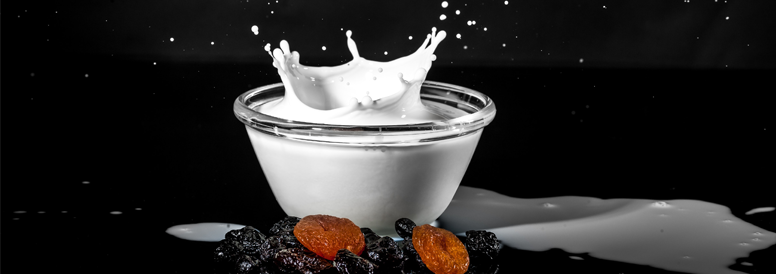Lactoferrin, Colostrum or Whey Protein for Immune Support: What’s the Difference?
Whey protein, lactoferrin and colostrum are all related to each other and to mammalian milk or lactation in one way or another. Lactoferrin is a type of whey protein, comprising 15-20% of the total protein content in human milk. The breakdown of protein in human milk is generally 30% casein and 70% whey protein while the breakdown in bovine milk is the reverse: 20% whey and 80% casein. Human milk contains a great deal more lactoferrin than bovine milk. And human colostrum, which is the first lactation fluid produced immediately following the birth of a newborn, contains about seven times more lactoferrin than is found in milk produced later on. At this point, you can probably see the benefit of colostrum. However, dietary supplements are not made from human milk. They are made from cows’ milk, and this presents some differences that we hope to clarify for you.
Lactoferrin
Lactoferrin is an iron binding protein found in colostrum and milk. It’s present in the fluids of the eyes, nose, and respiratory tract and plays an important role in immunity. Iron is an essential element for both humans and microbes, and an important facet of the innate immune system is to limit iron availability to microbes. Lactoferrin binds iron, and makes it available to the human, while sequestering if from the microbes. Obviously, this is critically important for a newborn, who needs iron to grow and lacks adequate immune defenses. Microbes that make their way into the infant’s GI tract are kept in check by the lactoferrin present in milk.
In dietary supplements, lactoferrin is present in some whey protein powders and to a lesser extent in colostrum powders, but also available separately as lactoferrin capsules.
Colostrum
Colostrum is a rich source of lactoferrin, antioxidants, insulin-like growth factor I and II, immunoglobulin, oligosaccharides, vitamin A, and alpha tocopherol. This potent combination of active compounds is designed specifically for supporting the immature immune system of the newborn.
While colostrum is rich in macronutrients, vitamins, and minerals, its immune benefits are also linked to specific protein compounds, which include lactoferrin and antibodies, also known as immunoglobulins. Antibodies or immunoglobulins are proteins used by your immune system. Bovine colostrum is rich in the antibodies IgA, IgG, and IgM, but not quite so rich in lactoferrin (because lactoferrin is a type of whey protein).
As a dietary supplement, colostrum is available in different forms including powders, capsules, tablets, and chewables. It is mostly prized and standardized for the immunoglobulin content. Human clinical studies published between 2014 and 2018 have confirmed the immune-system support benefits of supplemental colostrum for both children and adults, with one of the most important effects being the support of barrier function in the GI tract. This is attributed to the immunoglobulins. When GI structure is compromised, colostrum is a helpful dietary supplement to include in a GI support regimen, knowing that it directly supports the gut-immune system.
Whey Protein
Natural, non-denatured whey protein can also be a good source of both lactoferrin and immunoglobulins, but not all whey proteins are created equal. Most whey powders and whey protein concentrates have been heavily processed, which destroys the immune supportive properties. If you want a whey protein powder with immune supporting benefits, then you want to examine the label for the lactoferrin and immunoglobulin content. Only natural, bioactive, non-denatured whey protein powder will contain these active proteins. A scoop serving of non-denatured whey protein may contain up to 2 g of immunoglobulins and up to 800 mg of lactoferrin. That’s a lot! For those using whey protein powder regularly as a dietary supplement, and want the “whole food” immune support advantages, then using a minimally processed whey protein powder is a great choice.
No matter which of these supplements you choose, one thing to keep in mind is to be alert to allergies. Whey, colostrum and lactoferrin supplements are all made or derived from cow’s milk, so these products are not suitable for those allergic to milk.

